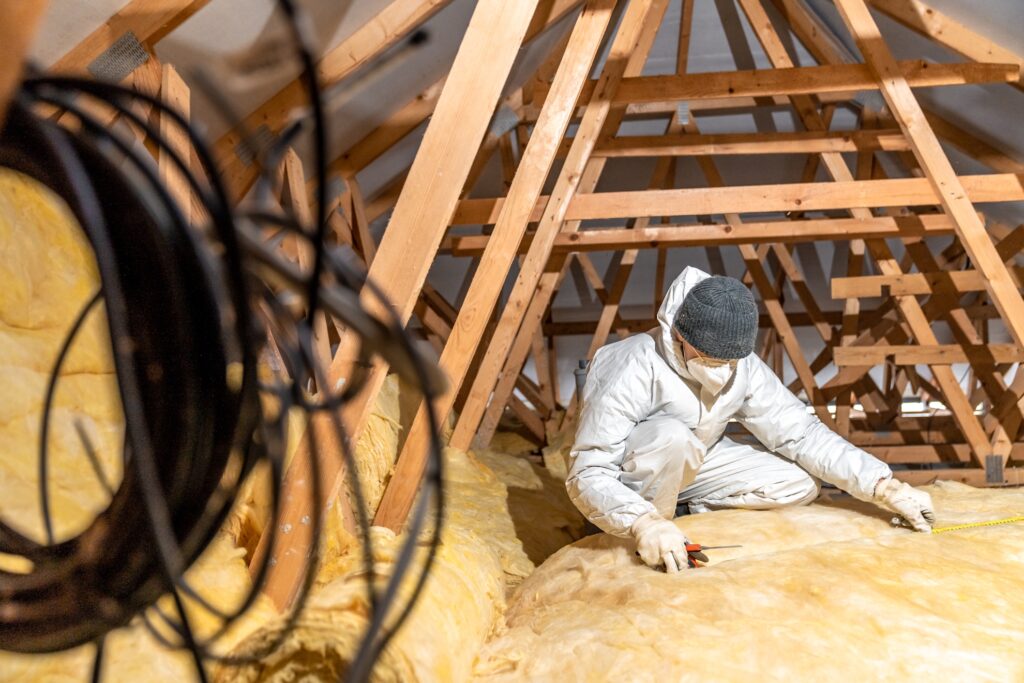Pulse of Information
Stay updated with the latest news and insights.
Insulate Your Wallet: How Home Insulation Saves You Money
Unlock savings! Discover how proper home insulation can slash energy bills and boost your comfort. Insulate your wallet today!
5 Ways Home Insulation Reduces Your Energy Bills
Proper home insulation is a crucial factor in maintaining an energy-efficient environment. By preventing heat loss during the winter and keeping cool air inside during the summer, insulation helps regulate your home's temperature. Here are 5 ways effective insulation can significantly reduce your energy bills:
- Minimizes Heat Transfer: Insulation creates a barrier between the interior and exterior of your home, minimizing heat transfer. This means your heating system won't have to work as hard in the winter months, leading to lower energy consumption.
- Enhances HVAC Efficiency: When your home is well-insulated, your heating and cooling systems can operate more efficiently. This efficiency directly translates to lower utility bills.
- Prevents Drafts: Insulation seals gaps and cracks, preventing cold drafts from entering your space. This comfort not only improves your living experience but also reduces energy waste.
- Increases Home Value: Homes with quality insulation are often valued higher in the real estate market. Energy-efficient homes attract buyers, which can lead to long-term financial benefits.
- Reduces Carbon Footprint: By lowering energy consumption, proper home insulation helps reduce your carbon footprint, contributing to a more sustainable environment.

The Ultimate Guide to Choosing the Right Insulation for Your Home
When it comes to choosing the right insulation for your home, understanding the different types available is crucial. Insulation can be broadly categorized into several types: fiberglass, foam board, spray foam, and cellulose. Each material has its own set of benefits and drawbacks, so it's essential to assess your specific needs, such as climate, budget, and the area of your home that requires insulation. For instance, fiberglass is a popular choice for its cost-effectiveness and versatility, while spray foam offers superior air-sealing performance that can enhance energy efficiency.
To make an informed decision, you should also consider the R-value of each insulation type, which measures its thermal resistance. A higher R-value means better insulation performance. Additionally, think about the installation process and whether you will hire a professional or attempt a DIY installation. Remember, proper installation is just as important as the material itself in achieving optimal energy efficiency. To summarize, evaluating your home’s specific requirements and understanding the different insulation materials and their properties can help you successfully navigate the process of choosing the right insulation for your home.
How Much Can You Really Save with Proper Home Insulation?
Proper home insulation plays a crucial role in enhancing energy efficiency and reducing utility bills. By minimizing the transfer of heat through walls, roofs, and floors, homeowners can significantly lower their heating and cooling costs. On average, homeowners can save between 10% to 50% on energy bills, depending on the initial insulation levels and the climate. The savings can accumulate quickly, making a well-insulated home not just comfortable but also economical in the long run.
Besides direct financial savings, improving your home's insulation can have numerous additional benefits. For instance, it can create a more stable indoor temperature, reduce noise pollution, and increase the overall value of your property. With an initial investment in high-quality insulation, many homeowners recoup their money within a few years through lower energy bills and increased comfort. Therefore, if you’re considering home improvements, investing in proper insulation should be a top priority.